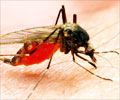Frequently Asked Questions
1. Which doctor should I visit in case I suffer from a Cluster headache?You need to visit a Neurologist if you have Cluster Headache. However, it is recommended to first contact your general physician if you experience bouts of cluster headaches and ask him / her to recommend for a neurological consultation. You can also contact a neurologist, if you know any.
2. What tests are recommended to diagnose the causes of Cluster headaches?
Mostly, doctors diagnose cluster headaches wholly on the basis of the symptoms that patients report and by basic physical examination. However, in some cases, the doctor may recommend MRIand CT scans, to rule out wrong diagnosis due to other medical conditions that present similar symptoms. The following conditions may cause symptoms similar to cluster headache-
- Meningiomas of the cavernous sinus
- Pituitary adenomas
- Nasopharyngeal carcinoma
- Arteriovenous malformations
- Aneurysms in Vertebral artery and Brain
- Sub-arachnoid hemorrhage in brain
- Metastatic carcinoma of the lungs.
3. Is it true that Cluster headaches generally strike at night only?
True. In most cases, cluster headaches strikes about two-three hours after a person has fallen asleep to wake him / her. However, Cluster Headaches can also strike in the daytime. But, these nocturnal attacks are generally more intense and severe than the daytime attacks, and are found to be linked with the biological clock.
4. Are cluster headaches dangerous?
In general, cluster headaches are harmless conditions akin to migraines. However, the doctors will be conducting complete medical examinations in case of patients reporting cluster headaches, to rule-out any underlying life-threatening causes such as tumors, cancers or sub-arachnoid hemorrhages.
5. Will the cluster headaches go away on their own?
In general, the Cluster headaches will rarely get resolved on their own, as they are often a lifelong problem like migraine. However, if any serious underlying cause like tumors or Sub-arachnoid hemorrhage of brain is diagnosed, then the headaches may go-away after surgical intervention and other relevant treatment.














